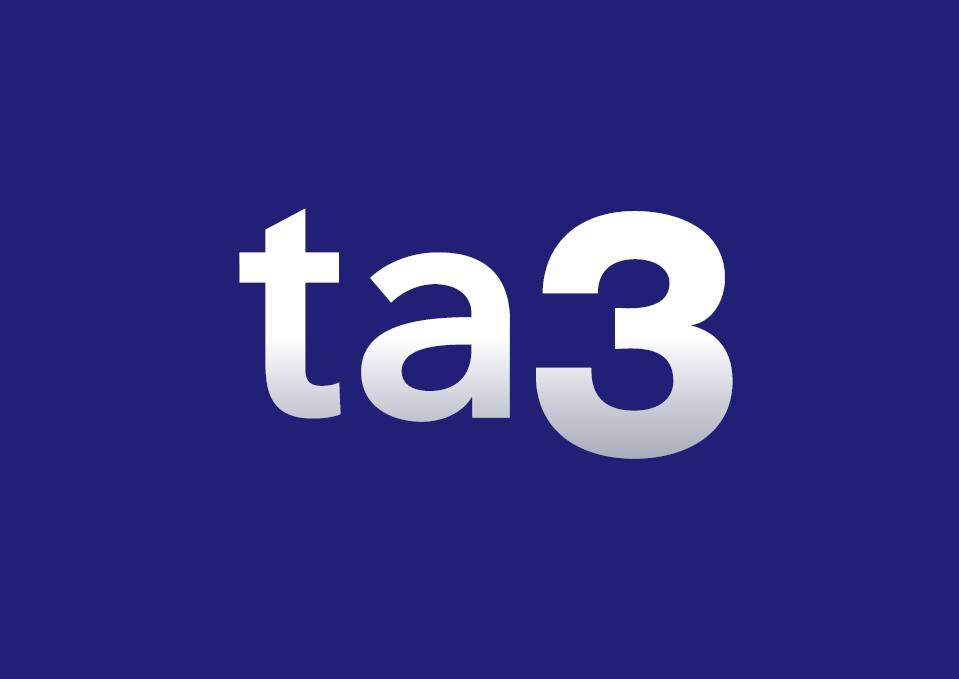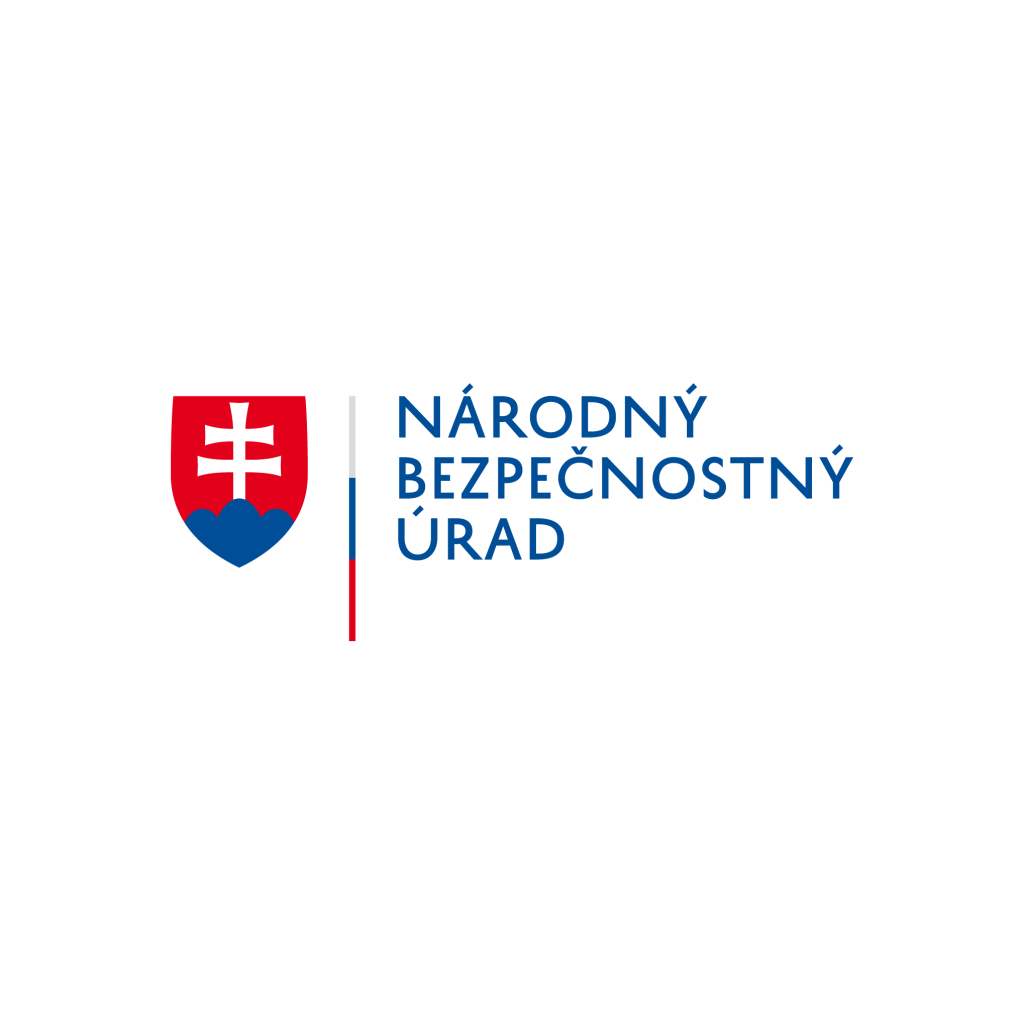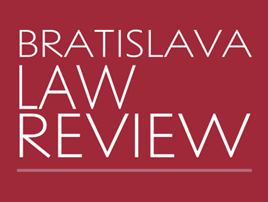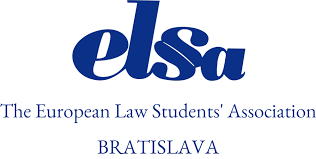The event is funded by the European Union NextGenerationEU

Conference program 17. 9. 2025
Main partner

Media partner

General partners







We are constantly updating the program of the plenary session. Program change reserved.
17 September 2025 (Wednesday) in the Hall of Comenius University
The central theme of the plenary session:
Digitalization of Law and Security in the Digital Environment
9.00 – Opening of the Plenary Session
Speeches:
Marek Števček
rector of the Comenius University Bratislava
Eduard Burda
dean of Faculty of Law, Comenius University Bratislava
Juraj Blanár
minister of Foreign and European Affairs of the Slovak Republic
Matúš Šutaj Eštok
minister of the Interior of the Slovak Republic
Professional contribution:
Gautam A. Rana
Ambassador of the United States of America
I. panel discussion
Transposition of the NIS2 Directive – Practice in the V4 countries
The panel will feature representatives of the relevant cybersecurity authorities of the V4 countries who participated in the transposition of the NIS2 Directive into national law.

Viktor Munkácsi
Dr. Viktor Munkácsi, Head of Incident Management at the Hungarian National Cyber Security Centre. His current areas of expertise are cyber security incident management and cyber security crisis management. Viktor has 30 years of experience in law enforcement. In addition to his knowledge of IT networks, he also has a law degree, and this knowledge and experience has enabled him to lead administrative and technical departments for 20 years, at the Special Servive for National Security Hungary, the organization that operates the National Cybersecurity Center. He participated in the development of Hungary's new cybersecurity legislation, which, in addition to transposing NIS 2, transformed the entire Hungarian cybersecurity organizational system.

Marcin Domagała
Graduate of international relations at Collegium Civitas in Warsaw. Between 2007 and 2017, he worked at the Office of Electronic Communications, where he was primarily involved in analysing the Internet access services market and then the postal services market. Since 2019, he has been working in the Cybersecurity Department of the Ministry of Digital Affairs. Since 2022, he has been Head of the International Cooperation Division in the Area of Cybersecurity, which deals primarily with cooperation within the EU, including EU legislation issues, as well as international contacts with non-EU countries in the area of cybersecurity.

Ondřej Polák
Ondřej Polák works as a member of the private sector regulation unit within the regulation department of the National Cyber and Information Security Agency. He participated in the preparation of Czech cyber security legislation, which is based on the NIS2 directive, and he specializes in the energy, food, manufacturing, and space sectors. He studied law at the Faculty of Law of Masaryk University (Brno). Before joining the National Cyber and Information Security Agency, he worked for six years as an assistant to the judge of the penal division of the Municipal Court in Brno.

Jaroslav Ďurovka
Head of National Cyber Security Center, Slovakia. Since December 1, 2023, he has been the Director of the National Cyber Security Center at the National Security Office. Previously, he held several management positions in the field of law, regulation, data protection and information security primarily in the telecommunications sector.
II. panel discussion
Global Challenges of Digital Regulation
In an era of rapid technological advancement, digital regulation has become a crucial yet complex issue on a global scale. This panel discussion will explore the key challenges policymakers, businesses, and legal experts face in regulating digital technologies, including artificial intelligence, data privacy, platform governance, and cybersecurity. Experts from various fields will discuss the evolving regulatory landscape, the tension between innovation and compliance, and the need for international cooperation. The panel will also examine how different jurisdictions approach digital regulation and what lessons can be learned to create balanced, future-proof policies.

Hong Dae-sik
Professor Hong Dae-sik is currently a full-time professor of economic law at Sogang University's Law School and serves as the director of the ICT Law and Economics Research Center. Before joining academia, he served as a judge at various courts, including the Seoul District Court, for 10 years and worked as a member lawyer at Yulchon LLC for about 5 years. He holds a Bachelor of Laws, Master of Laws, and Doctor of Laws from Seoul National University, and has been a visiting scholar at the University of London in the UK and UC Berkeley in the USA.

Iana Kazeeva
Iana Kazeeva is a postdoctoral researcher at the Department of Innovation and Digitalisation in Law. She studied international commercial and tax law in Moscow and holds a Candidate of Sciences degree (Ph.D. equivalent) in international financial law (dissertation on fiscal decentralization). Prior to joining the Department, she worked at the Mountain View office of a California-based public software-as-a-service company, primarily engaged in reviewing and negotiating technology and commercial contracts. She also gained practical experience as a senior legal counsel at the legal department of a global producer of mineral fertilizers, focusing on project finance and legal compliance. At the Department, the primary focus of her research is on intellectual property, data security, and data protection law.

Lilla Nóra Kiss
Lilla Nóra Kiss is a Senior Policy Analyst at the Schumpeter Project on Competition Policy at the Information Technology and Innovation Foundation, specialising in international antitrust law and innovation policy. With a PhD in law, she blends academic insight with real-world pragmatism to tackle regulatory challenges. She has been a visiting scholar at George Mason University, a Liberty Bridge Program fellow, and co-founded the FICE working group. Previously, she worked at the Hungarian Ministry of Justice and University of Miskolc.

Matúš Mesarčík
Matúš Mesarčík is currently an associate professor at the Faculty of Law of Comenius University Bratislava, where he works at the Institute of Information Technology and Intellectual Property Law. During his academic career, he gained experience as an advisor to public authorities and private entities in the field of personal data protection law and digital regulation. He holds a bachelor's, master's and doctoral degree in law from Comenius University Bratislava and an LL.M in Law and Technology from Tilburg University in the Kingdom of the Netherlands. In 2025, he completed a research stay at the University of Cambridge in the United Kingdom. His research focuses mainly on the regulation of artificial intelligence, personal data protection, the legal regulation of digital services and the intersection of technology with democracy and the rule of law.
18.00 – Reception at Hotel Devín
(Street: Riečna 4, 811 02 Bratislava)

Sections – 17. 9. 2025
Information Technology Law and Intellectual Property Law Section
Regulation, Cybersecurity and Digitalization of Law

Digital transformation and continuous technological progress bring new challenges to the legal environment, requiring innovative approaches and effective regulation. This section focuses on current issues in the field of information technology law, including legal and ethical aspects of artificial intelligence, cybersecurity and data protection regulation, as well as the digitalization of legal relations or services. Contributions will analyze how legal acts respond to the dynamics of the digital environment and explore the possibilities of how law can support the development of technological innovation, while ensuring the protection of fundamental rights, the values of the rule of law and a sufficient level of cybersecurity. The aim is to identify trends, challenges and opportunities facing legislation and legal practice in the era of digital transformation.
Guarantors of the section:
doc. JUDr. Jozef Andraško, PhD.
JUDr. Matúš Mesarčík, PhD.
Civil Law Section
Current Challenges and Limits of Civil Law in Connection with the Advent of Artificial Intelligence

The modern era is closely related to the dynamic development of social relations, which appear to be new and unknown in the context of the previous state of development of society. They are being created not only as a result of the dynamics of society itself, the level of scientific and technological knowledge, but also as a result of the modification of value settings. Pursuing the very purpose of the law, there is thus a need to regulate them so that they cannot become an abusable product in the hands of a controlling person. The aim of the chosen topic is to focus on specific actual issues of civil law, to identify the needs for regulation, its current status and perspectives. On the other hand, it creates an opportunity to critically evaluate the negatives that arise from the current state of society and to determine the adequate space and instruments of legal protection. Contributions concerning civil law in its substantive connotations, but also in aspects of procedural law are welcome.
Guarantors of the section:
prof. JUDr. Alexandra Löwy, PhD.
JUDr. Ing. Karin Raková, PhD., MBA
By registering for the conference, the participant agrees that an audiovisual recording may be made of the event, which may be used for promotional purposes by the event organizer, including publication on the website, social media, and other communication channels. If the participant does not agree to the recording, they are required to inform the event organizers of this fact.
